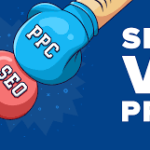What is PPC, Importance, Career options
Pay-Per-Click (PPC) advertising is a powerful digital marketing strategy that allows businesses to reach their target audience effectively and efficiently. In this article, we will delve into the world of PPC, exploring its importance in the digital landscape and the career opportunities it offers.
| Section | Summary |
|---|---|
| Introduction to PPC | PPC is an advertising model where advertisers pay per click on their ads. |
| Importance of PPC | Drives targeted traffic, delivers immediate results, and offers measurable ROI with budget control. |
| Career Options in PPC | Careers include PPC Specialist, Manager, and Digital Marketing Manager. |
| Skills for PPC Career | Analytical, keyword research, ad copywriting, and budget management. |
| How PPC Works | Ad auction, keyword targeting, and Quality Score impact ad ranking. |
| Types of PPC Advertising | Search Ads, Display Ads, Social Media Ads. |
| Setting up a PPC Campaign | Involves keyword selection, budget allocation, and ad creation. |
| Measuring PPC Success | Key metrics: CTR, Conversion Rate, CPC, and ROAS. |
| Future Trends in PPC | Automation, voice search optimization, and video advertising. |
Introduction to PPC
PPC, or Pay-Per-Click, is an online advertising model where advertisers pay a fee each time their ad is clicked. It’s a way to buy visits to your website, rather than earning them organically through SEO. This method ensures that your website or landing page appears at the top of search engine results when users enter specific keywords related to your business.
Importance of PPC
Drive Targeted Traffic
One of the key benefits of PPC advertising is its ability to drive highly targeted traffic to your website. You can choose the keywords for which your ads will appear, ensuring that your message reaches the right audience at the right time.
Immediate Results
Unlike some other digital marketing strategies that take time to show results, PPC provides immediate visibility. Your ads can start generating traffic and conversions as soon as they are live.
Measurable ROI
PPC campaigns are highly measurable. You can track every click, conversion, and dollar spent. This level of transparency allows you to calculate your return on investment (ROI) accurately.
Budget Control
PPC advertising offers complete control over your budget. You can set daily or monthly spending limits, ensuring that you never exceed your allocated budget.
Career Options in PPC
A career in PPC offers exciting opportunities for digital marketing professionals. Here are some common roles in the field:
PPC Specialist
PPC specialists are responsible for managing and optimizing pay-per-click campaigns. They analyze data, perform keyword research, and adjust ad campaigns to maximize ROI.
PPC Manager
A PPC manager oversees multiple PPC campaigns. They create strategies, manage budgets, and coordinate with teams to ensure the success of PPC initiatives.
Digital Marketing Manager
Digital marketing managers often have a broader role, but PPC is a significant part of their responsibilities. They develop overall digital marketing strategies, including PPC, to meet business objectives.
Skills Required for a Career in PPC
To excel in a PPC career, you’ll need a mix of technical and analytical skills, including:
- Analytical skills to interpret data and make data-driven decisions.
- Proficiency in keyword research to identify the right keywords for campaigns.
- Ad copywriting skills to create compelling and relevant ad content.
- Budget management skills to allocate resources effectively.
How Does PPC Work?
Ad Auction Process
When a user searches for a keyword, an ad auction takes place. Advertisers bid on keywords, and the search engine uses a complex algorithm to determine which ads appear and in what order.
Keyword Targeting
PPC campaigns target specific keywords relevant to the business. Advertisers choose which keywords trigger their ads, ensuring relevance to user queries.
Ad Rank and Quality Score
Ad rank is determined by bid amount and Quality Score. Quality Score measures the relevance and quality of your ads, keywords, and landing pages.
Types of PPC Advertising
There are several types of PPC advertising, including:
- Search Ads: These ads appear on search engine results pages (SERPs) and are triggered by keywords.
- Display Ads: Display ads are visual and appear on websites within the Google Display Network.
- Social Media Ads: Social media platforms like Facebook and Twitter offer PPC advertising options.
Setting up a PPC Campaign
Setting up a successful PPC campaign involves:
- Careful keyword selection to target the right audience.
- Allocating a budget that aligns with your business goals.
- Creating compelling ad copy that encourages clicks.
Measuring PPC Success
To gauge the effectiveness of your PPC campaigns, you can track key metrics like:
- Click-Through Rate (CTR): The percentage of people who click on your ad after seeing it.
- Conversion Rate: The percentage of clicks that result in desired actions, such as a purchase or sign-up.
- Cost Per Click (CPC): The cost you pay each time someone clicks on your ad.
- Return on Ad Spend (ROAS): The revenue generated for every dollar spent on advertising.
Future Trends in PPC
The PPC landscape is continually evolving. Some future trends to watch out for include:
- Automation: AI and machine learning will play a more prominent role in campaign management.
- Voice Search: As voice-activated devices become more popular, optimizing for voice search will be crucial.
- Video Advertising: Video ads are becoming increasingly popular on platforms like YouTube.
Conclusion
PPC advertising is a dynamic and results-driven digital marketing strategy. Its importance lies in its ability to deliver targeted traffic, immediate results, and measurable ROI. Furthermore, it offers promising career opportunities in roles such as PPC specialist, manager, and digital marketing manager. As the digital landscape continues to evolve, staying updated with the latest PPC trends is essential for success in this field.
FAQs
PPC advertising is a digital marketing strategy where advertisers pay a fee each time their ad is clicked. It allows businesses to appear prominently in search engine results.
PPC can benefit businesses by driving targeted traffic, providing immediate results, offering measurable ROI, and allowing budget control.
Skills required for a career in PPC include analytical skills, keyword research, ad copywriting, and budget management.
Key metrics for measuring PPC success include Click-Through Rate (CTR), Conversion Rate, Cost Per Click (CPC), and Return on Ad Spend (ROAS).
Future trends in PPC include increased automation, the rise of voice search optimization, and the growing popularity of video advertising.






